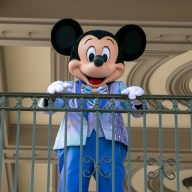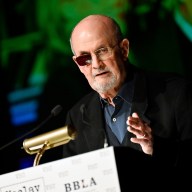Every time the price of gas climbs above $1.20 per litre, like it is right now, people talk about driving less.
Depending on your job, your commute or getting the kids to the arena and music lessons, driving less isn’t often an option. What we should really be talking about is driving smarter. That’s something everyone can do, regardless of your proximity to the workplace or familial responsibilities.
Did you know you can increase fuel economy by as much as 35 per cent without modifications or additives? It’s called “hypermiling.” The term was coined in the U.S., hence the “miling,” plus “hyperkilometreing” just doesn’t have the same ring, so we’ll stick with the original.
Hypermiling, the process of getting the most distance out of the least amount of fuel, consists of two main components. The first is a properly maintained vehicle. Properly inflated tires that are checked regularly can certainly help, as can seasonal tune-ups. Daylight Savings Time has been used as a trigger to remind people to check the batteries in their smoke detectors, and it should also be a reminder about a tune-up. Keeping your car in peak working order is not only wise from a safety standpoint, it can also lessen the sting felt at the gas pump.
However, true hypermiling is more about your attitude and your right foot than it is about your vehicle. Following a few simple practices can improve your fuel economy beyond what is claimed by the manufacturer.
The editors at the comprehensive automotive website edmunds.com have been studying fuel economy for years and they discovered that while under-inflated tires could cost you about three per cent in fuel usage, calming down behind the wheel could save you as much as 35 per cent.
They also found some surprising things that may be counter-intuitive. For example, which saves more gas on the highway on a hot day? Do you turn off the air conditioning and roll down the windows? They say, “No.” On the highway the AC isn’t making much of a difference, but the drag created from the open windows is worse.
So what can you do to drive calmer and save some money? First, keep track of your mileage so you have a benchmark and can then gauge which techniques work best for you. Then, concentrate on every aspect of your driving. How fast do you accelerate from a stoplight? How hard do you brake for a stoplight? How often is your right foot on and off the gas pedal? Are you using cruise control on the highway? Tailgating?
Consistency is a major part of saving. Pull away more slowly and gradually. Your car may go from 0-100 km in eight seconds, but if you do it in 16 seconds you’ll be surprised how much you will save. And when you are moving, try to maintain the same speed without much fluctuation in the pressure you apply to the gas pedal. When you come to that next red light, coast earlier.
The biggest eater of fuel is, of course, speeding, so slow down and maintain as constant a speed as possible. We mentioned cruise control earlier and it can either save or waste fuel, depending on how you use it. On clear stretches of highway where a constant speed can be maintained, it will save gas. There is a natural tendency for drivers to speed up over time, the cruise control will prevent that. And while it may speed up to climb a hill, it will also coast down the other side, so it usually balances out.
There are many more techniques for saving fuel, so search hypermiling online if you really want to keep more of those dollars in your pocket. You may be surprised that in the some parts of the U.S., hypermiling has actually become a competitive sport. Imagine getting fuel economy results like 1.7 litres per 100 kilometres. It’s possible and all it takes is a cooler head, a lighter foot, patience and concentration. Try it and let me know how much you saved and I’ll share the results here next month.
Todd Bourgon is the executive director of the Toronto Automobile Dealers Association. He can be reached at tada@metronews.ca.














